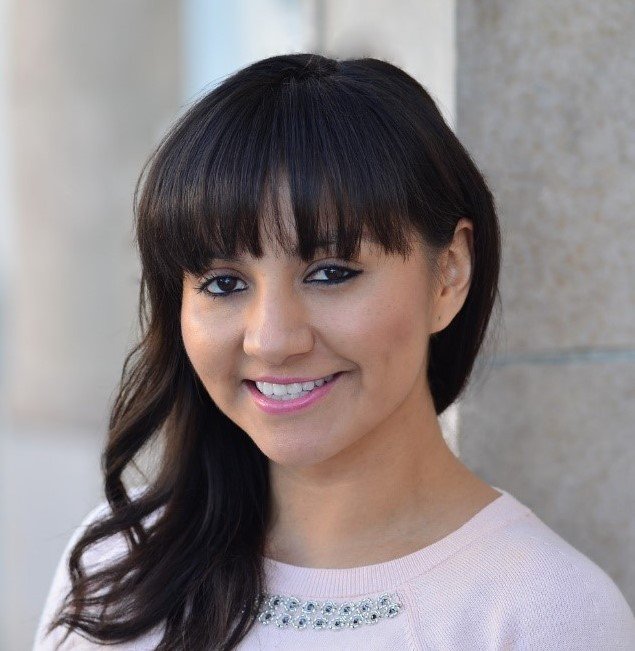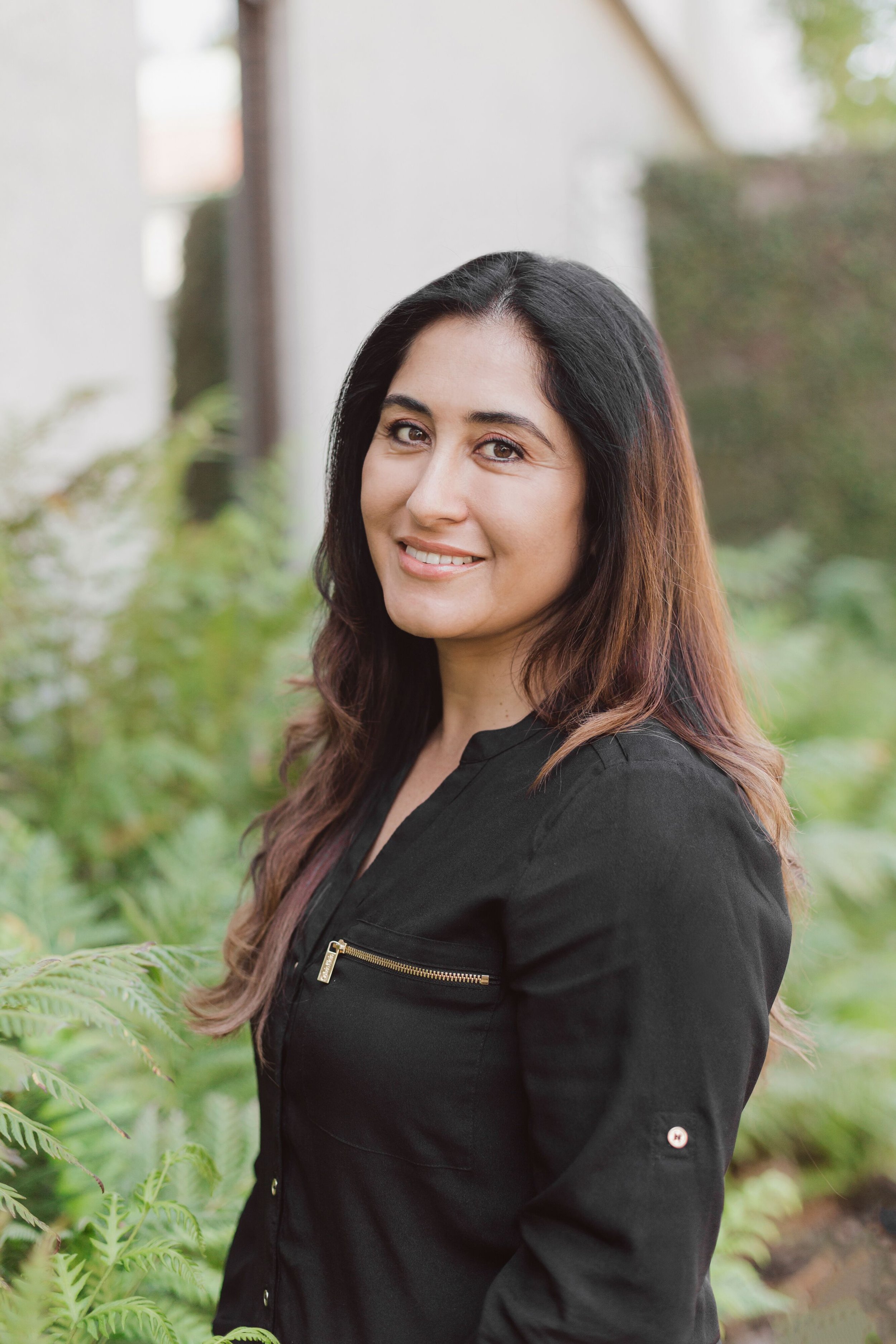Expanding the Scope of Trust-Based Philanthropy: How Funders are Helping Reshape Learning & Evaluation
By Jazmin Segura, Fund for an Inclusive California and
Maricela Piña, MPH, Community Centered Evaluation & Research
The Trust-Based Philanthropy Project is partnering with the Fund for an Inclusive California (F4ICA) to chart a course for how philanthropy can reimagine learning and evaluation in alignment with community priorities. In this blog series, F4ICA will provide an overview of how they are reshaping learning and evaluation (L&E), delve into a case study of how they've partnered with community advisors to ensure L&E informs community-driven grantmaking and share practical steps and tools for peers in philanthropy interested in reimagining L&E at their own institution.
To make real, transformative progress toward a just future, we must trust and learn from communities who are best positioned to identify and craft solutions for the issues they face. That’s why at Fund for an Inclusive California (F4ICA) we’ve deepened our commitment to trust-based philanthropy. We believe in relational community building with partners within nonprofits and movements, and seek to shift power away from philanthropy and toward social justice leaders and organizations.
One area where philanthropy has held on tightest to power and control over community partners is through the commissioning and use of evaluation data. Traditionally, evaluation has been commissioned and used by funders to determine the “effectiveness” of nonprofits and social movements, holding grantees to exacting and often unreasonable funder-derived standards.
In the past several years, our belief in trust-based philanthropy has driven F4ICA to actively reimagine learning and evaluation (L&E) as part of our broader efforts to shift power to community leaders and organizations. With these changes, we hope to help remove unnecessary obstacles so grantees can access greater philanthropic resources and support, and have what they need from philanthropy in order to keep working toward real transformation and lasting change.
We are sharing our experiences and reflections as one example from a growing number of funders and collaboratives seeking to create more equitable and power-shifting approaches to learning and evaluation.
Why Reimagine Learning and Evaluation, and Use It as an Accountability Tool?
“It’s important to create spaces and processes that feel safe and welcoming to enter into authentic partnership with us as grantees by continually being aware of the power dynamic and imbalance between funders and grantees. We hope the Fund will continue to ask direct questions about organizations’ capacity, create trust funds, and bring in additional resources.”
–F4ICA community advisor
As a new funder collaborative, the Fund for an Inclusive California was launched with a commitment to reshaping learning and evaluation to align with our overarching vision for equity, accountability, and partnership with community advisors. (Community advisors are Fund grantees who co-create the priorities, learning, and evaluation of the Fund.) We wanted to hold ourselves and our funding partners accountable to shared values and principles that prioritize community needs. We sought to make space for transformation.
As women of color leading this work and coming from communities harmed by racial injustice and economic inequity, we knew we could not rely on the status quo to get us there. An equitable evaluation approach would need to own the responsibility that funders have to be accountable to the communities we serve. We needed to push back on the extractive norms of philanthropic evaluation, and try a new way forward.
Our conversations at the Fund mirrored tough questions the wider philanthropic sector has been asking itself over the past several years about how to be in true partnership with communities. Nonprofit and movement leaders have made it clear through direct conversations and in field-wide surveys that philanthropy needs to do better to ensure resources are being channeled in a way that enables nonprofits and movements to use these resources in line with community needs and priorities.
In the Building Movement Project’s 2020 survey, a respondent said, “Even during COVID-19, there is philanthropic inequality. Bigger organizations are resourced even more, while those doing the work at the community level are still struggling.” Another respondent flagged, “By design, and as a result of the system we live in, communities of color are pitted against one another for resources. We shouldn’t be fighting over meager resources but be supported to work in solidarity with each other.” The nonprofit and movement leaders they surveyed raised the need for “reduced application and reporting requirements, and the conversion of program funds to flexible general operating support…and substantial funds for crisis recovery.”
Through a combination of landscape research, drawing lessons from our own experiences as both community members and funders, and engaging in direct listening with community advisors, the Fund formulated principles to guide us as we reimagine learning and evaluation. The core objective is to reshape evaluation as an opportunity for funders to learn and evolve as stewards, rather than taking on the narrow–and virtually impossible–task of proving that limited grants make a measurable impact on longstanding, complex social issues.
Showing Up as True Partners to Nonprofits and Communities
“If not for F4ICA, we would not have a stream of work that seeks to, over time, make big real estate money in the political process toxic. This work is heavy on communications and narrative shift work and light on short-term deliverables.”
–F4ICA community advisor
The past four years of partnership with community advisors have taken F4ICA down a new, reimagined path to learning and evaluation, forcing us to be deliberate about what we seek to learn, why, and how, rather than continuing around the revolving door of invasive or unnecessary evaluation questions.
Under the guidance of the Fund’s community advisors, we developed the following principles to drive our approach to learning and evaluation (L&E):
honor and validate multiple forms of knowledge production and expertise;
prioritize co-learning with community advisors, ensuring transparency and accountability to them in evaluating the Fund’s activities;
orient materials development and dissemination processes toward community ownership of the data and information gathered; and
minimize the burden on community advisors at all steps of the process.
We’ve carried out the above principles in a number of ways, including:
accepting previously written proposals;
providing resources to build organizational capacity;
streamlining reporting by replacing reports with feedback opportunities and interviews with organizations where they can share learnings, stories, and updates that continue to inform the evolution of our collective work;
creating L&E spaces where community advisors can reflect on their work and network with one another, in support of their organizational and shared movement goals; and
using a learning framework to ensure we are always reflecting and making connections between L&E and other core components of the Fund’s work including grantmaking, capacity building, communications, and more. (The way we have set up the learning framework also allows us to strategize with and learn from multiple stakeholder perspectives, while centering community advisors.)
With L&E as a throughline that connects much of our work, we can continually assess the Fund’s impact in service to aligning and growing resources for social justice and movement priorities, and elevating the impact and work of grantee partners. Evaluation became a tool not for controlling grantees’ performance and outcomes, but for holding ourselves accountable to social justice and movement building organizations.
We have prioritized establishing deep, one-on-one relationships with community partners, which in some cases began even prior to the Fund’s inception. Sustained relationship building helped lay the groundwork as we engaged community advisors and got to know their needs and priorities. This allowed us to shift resources quickly and respond to urgent, emerging needs in real-time particularly during the initial onset of the COVID-19 pandemic in 2020.
In 2021, we developed a “reflection report” that served as an evaluation of our initial phase of work. The evaluation was intended to drive our understanding of how to continue aligning our values with the investments and activities of the Fund. The findings underscored that funding in alignment with movement priorities is critical, particularly funding that is flexible, multi-year, and aligns with region-specific strategies for housing justice.
What we learned through the evaluation and subsequent reflection report informed our decision to continue the Fund beyond its initial phase. We heard from community advisors that our philanthropic efforts are needed to be able to resource and support housing justice in a way that builds community and regional power for advocacy and systems change across California. Reimagining L&E pushed us to reflect on our grantmaking role and contributed to our decision to deepen and expand our efforts in service to nonprofit and movement leaders into the next phase of work.
Reshaping L&E Across Philanthropy
Values-based and community-driven learning and evaluation require flipping the power paradigm and putting the onus of accountability on philanthropy, rather than nonprofits and communities. As the Fund for an Inclusive California moves ahead on its journey to reimagine L&E with this focus on shifting power, we are encouraged and inspired by similar efforts across the philanthropic sector, particularly the leadership of the Trust-Based Philanthropy Project (TBPP).
In January 2022, TBPP convened a webinar about trust-based practices in learning and evaluation, and over 500 people attended, demonstrating the tremendous interest there is in rethinking learning, evaluation, impact, and measurement.
TBPP has been sharing key L&E principles along with the Equitable Evaluation Framework developed by Equitable Evaluation Initiative to its network of foundations and donors to help spread these principles and approaches across philanthropy.
We urge funders and philanthropists across the U.S. to join us as we reimagine our relationships to communities and build toward the equitable, just world we’re all striving to live in.
Jazmin Segura is the Director at Fund for an Inclusive California
Maricela Piña is the Founder and Principal at Community Centered Evaluation & Research


